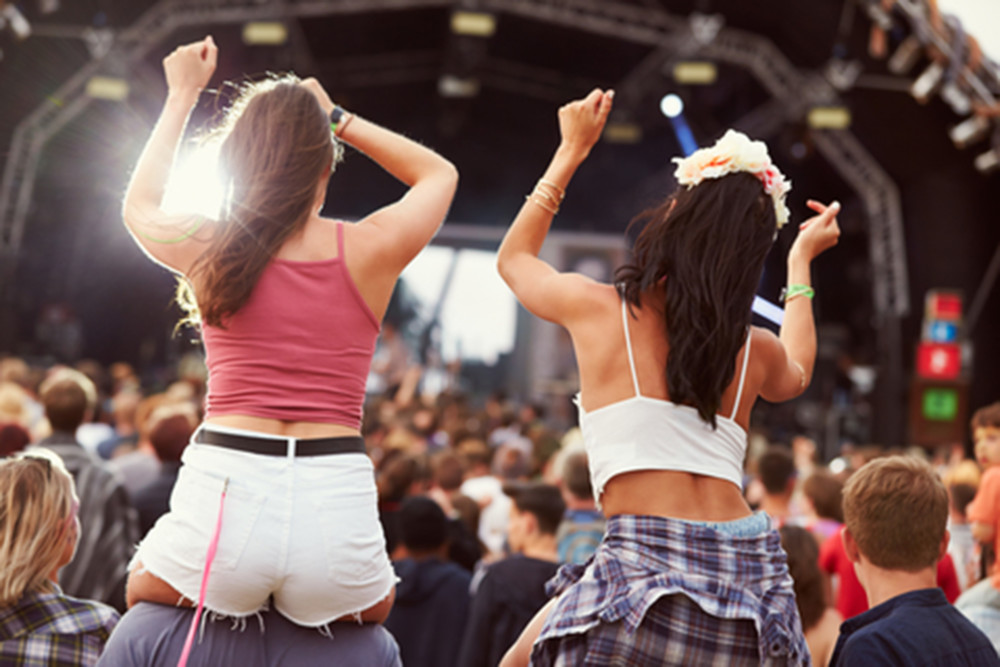By Jessi Roti
Chicago Tribune
WWR Article Summary (tl;dr) For the 92 percent of females who said they had been harassed in music spaces, the incidents included experiences of spoken harassment, groping, sexual gestures, stalking, being yelled at and being photographed or videoed without permission.
Chicago Tribune
More than 90 percent of female concertgoers surveyed by OurMusicMyBody experienced being harassed, the campaign said recently.
Launched in 2016 as a joint effort between nonprofit organizations Between Friends and Rape Victim Advocates, the OurMusicMyBody campaign aims to promote “fun and consensual music experiences for all” through anti-harassment policies and guidelines at music venues and festivals across Chicago.
After recognizing that festivals and venues did not have procedures in place to address issues of harassment and assault, or coordination and education between security and support teams (like medical, for example) about the next steps to take if these issues arise, the campaign became necessary, as echoed by Riot Fest creative director Jeremy Scheuch when he was asked why the festival partnered with OurMusicMyBody.
In 2017, OurMusicMyBody was responsible for the implementation of anti-harassment guidelines and policies at the city’s three major music fests, Pitchfork, Lollapalooza, and Riot Fest, as well as more locally focused events Ruido Fest and Green Music Fest. The campaign also partnered with various venues such as Lincoln Hall, Schubas, Subterranean and Beat Kitchen to provide information at concerts hosted year-round.
More than 500 respondents answered questions about harassment in the online survey taken between November and Dec. 11, 2017. The survey was broken down by gender: 379 females, 84 males and 57 nonbinary people. Harassment was defined as spoken violence and aggression to physical assault, including being drugged or being coerced into drinking.
For the 92 percent of females who said they had been harassed in music spaces, the incidents included experiences of spoken harassment, groping, sexual gestures, stalking, being yelled at and being photographed or videoed without permission.
Thirty-one percent of male fans experienced both physical and nonphysical harassment, according to the survey, and 60 percent of transgender attendees reported physical homophobic or transphobic violence.
OurMusicMyBody tallied 1,286 instances of harassment from the respondents, who were encouraged to check multiple options to describe their experiences. Forty-seven percent of respondents experienced unsolicited comments about their body, 41 percent were groped and 45 percent were aggressively “hit on.”
The survey also asked what desired safety measures fans hope to see implemented at festivals and venues; 505 responses were received. It showed that 99 percent of the respondents would feel more comfortable if venues had increased security, with 84 percent preferring that staff and security be trained in violence prevention and crisis intervention. Seventy-five percent of respondents want venues and festivals to increase signage that clarifies anti-harassment policies, and 62 percent hope venues create a designated safe space for those being harassed to go and still be able to enjoy the show.
“Our survey clearly represents what we have been hearing from everyone who we have spoken to at music festivals over the last two years,” said Matt Walsh, the Between Friends prevention and education specialist co-coordinating OurMusicMyBody. “Fans want to be able to go out to see their favorite band without having to worry that someone is going to disrespect their space. They want festivals and venues to actively support them and create a safer environment to enjoy these concerts.”
Most respondents also agreed that venues and festivals should not book artists and groups that have a history of abusing or violating others, and that they’d prefer venues partner with outside organizations that focus on preventing violence and harassment in public spaces.
In a statement, co-organizer of the campaign from Rape Victim Advocates’ Maggie Arthur said, “We are working towards building a community of people who care about preventing sexual violence at music venues and festivals. We are trying to change the culture within these spaces by addressing harassment head on.”
OurMusicMyBody will continue to be active this summer for its third year.














































































































































































































































































































































































